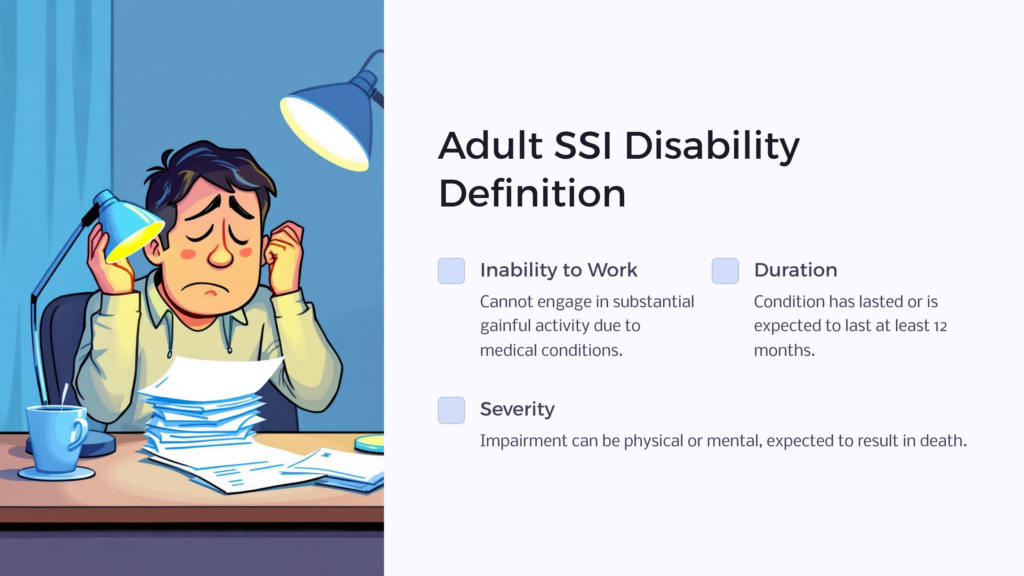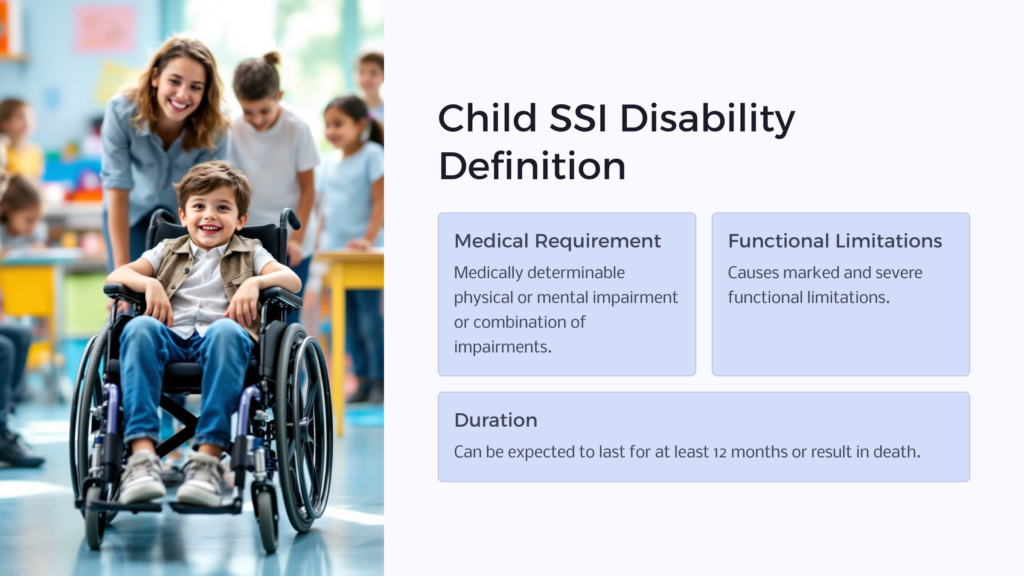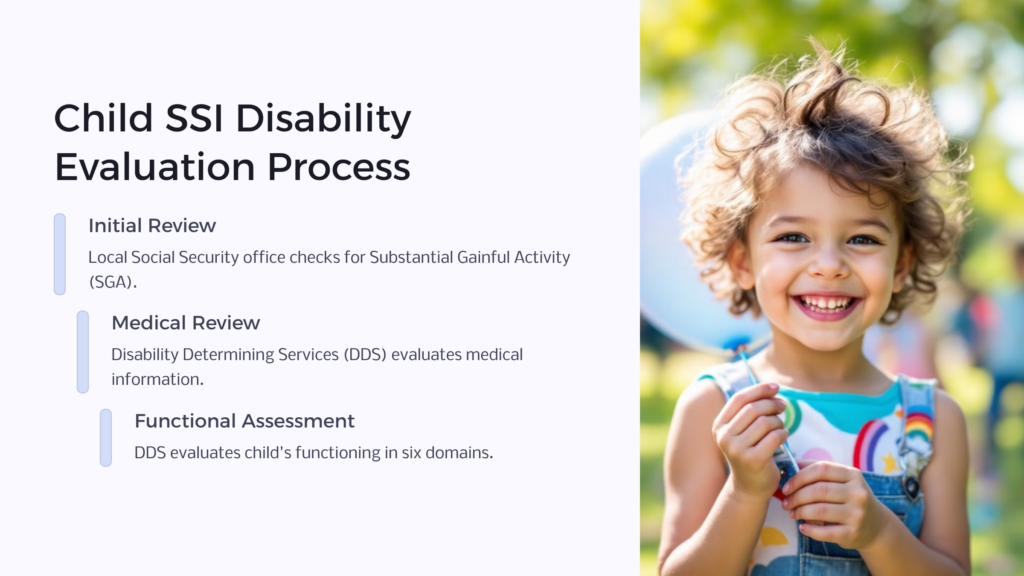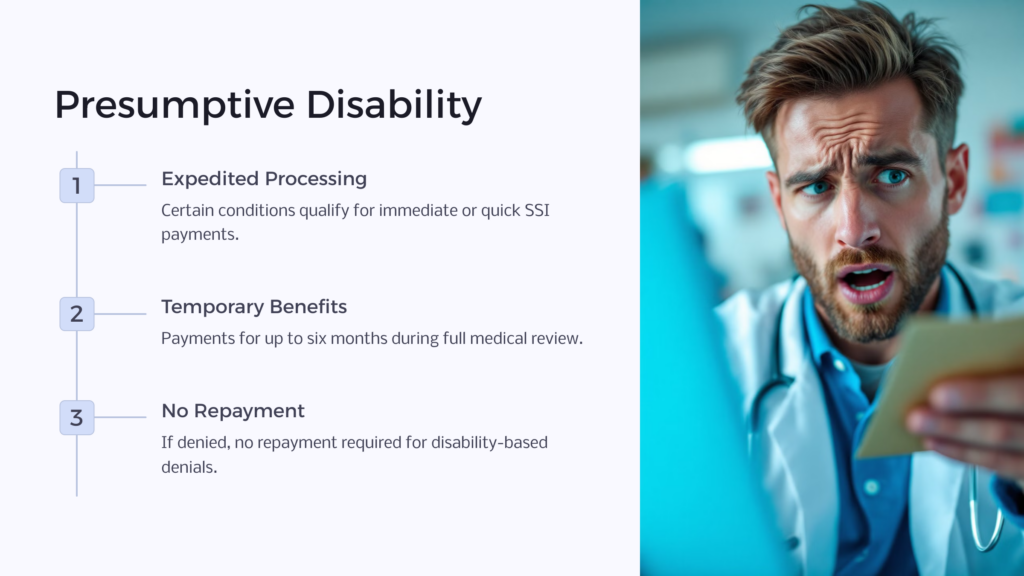What medical conditions are required to meet SSI disability qualifications and to get an SSI approval? Find out how disability is defined for SSI and what SSI disability qualifications adults and children must meet to get SSI.
The SSI Definition of Disability for Adults

Any medical or psychiatric condition can be the basis for meeting the SSI disability qualifications if you are limited in the manner described in the SSI definitions of disability.
SSI disability qualifications are different for adults and children. Adults who apply for SSI benefits are evaluated using the same definition of disability that is used for Social Security Disability applicants. According to Social Security and SSI disability laws, disability is an adult’s “the inability to engage in any substantial gainful activity by reason of any medically determinable physical or mental impairment which can be expected to result in death or which has lasted, or can be expected to last, for a continuous period of not less than twelve months.
When a child who is eligible for SSI turns eighteen, his or her eligibility for SSI has to be re-reviewed. The former child’s medical condition will undergo a new disability review to determine whether he or she meets the adult definition of disability. Additionally, his financial eligibility and potential benefit amount will be re-determined without consideration to his or her parents’ income and resources.
The SSI Definition of Disability for Children

A child is disabled for SSI purposes if he or she has “a medically determinable physical or mental impairment or combination of impairments that causes marked and severe functional limitations and that can be expected to cause death or that has lasted or can be expected to last for a continuous period of not less than twelve months.”
Determining a Child’s SSI Disability Status
If a child who is under age eighteen applies for SSI benefit and it is determined that he or she meets the non-medical eligibility requirements, the local Social Security office determines whether the child is performing work that is Substantial Gainful Activity, which is called SGA for short. In 2020, usually gross work earnings as an employee or net income from self-employment is considered to be SGA if the earnings reach $2,110 for a blind person or $1,260.00 for a non-blind person. If the child is performing SGA is performing SGA, then the child is not disabled.

If the child is not performing Substantial Gainful Activity, then the claim will be sent to the Disability Determining Services, which is called DDS for short. To conduct a medical review of your child’s claim, the DDS will review the medical and other information you provide on the SSI application form. The DDS may also ask you for additional information, contact your child’s medical providers and educators, or ask that your child to attend a Consultative Examination. The examination, if requested, will be for evaluation purposes only and will not include any treatment.
In its first step, the DDS evaluates whether your child has a physical or mental impairment that is medically determinable and whether it is severe enough to cause more than minimal functional limitations. If no impairment is supported or functional limitations are only minor, the claim will be denied. On the other hand, if your child has a severe impairment, then the review proceeds to the next step.
In this step, your child’s condition is compared to a list of illnesses with accompanying severity criteria that are considered disabling. If your child’s diagnosis and level of severity are in the listings or are medically equivalent to one of the listings, the claim will be approved. If not, the review moves to the next step, which is to determine whether your child’s level of impairment is functionally equal to the listings.
In this final step the DDS evaluates the effects of your child’s impairments on his or her ability to function at home, at school, and in the community. To perform the review, the DDS considers questions such as “How does the child function compared to unimpaired children of the same age?” “What kind of help and how much help does the child need to complete age-appropriate activities?” and “What are the effects of treatment on the child’s day-to-day functioning?”
It is important to have people who have first hand knowledge of your child’s functional limitations provide statements for the claim. Teachers, behavioral and speech therapists, and caregivers’ insights can be elucidating and valuable to your child’s claim.
After DDS has a clear picture of your child’s function they consider six broad areas of function to determine how your child functions in those areas. The six areas, called domains, are acquiring and using information, attending to and completing tasks, interacting and relating with others, mobility and ability to manipulate objects, caring for himself or herself, and maintaining health and physical well-being.
Two terms come into play at this point: “marked” and “extreme.” Social Security defines a “marked” limitation in several ways in their rules, but the most general definition is that a limitation is marked if “a child’s impairment interferes seriously with his or her ability to initiate, sustain, or complete activities.” A limitation is defined as “extreme” when “a child’s impairment interferes very seriously” with the ability to function in one of the domains.
If your child has “marked” limitations in two of the domains or an “extreme” limitation in one, then his or her impairment is considered to be functionally equal to the listings and he or she meets the SSI disability qualifications.
Determining Disability for Newborn Babies
A newborn baby with a low birth weight may be eligible for SSI benefits. The qualifying low- weight level depends upon the gestational age at birth.
Continuing Disability Review
SSI law requires that we review your child’s medical condition every three years for children under age eighteen whose condition is expected to improve. In addition, a medical review is usually conducted by age one for babies who received an SSI approval based on low birth weight.
Reviews are also done at intervals to determine whether adult SSI recipients still meet SSI disability qualifications.
Overview of SSI Disability Eligibility Requirements
Acquaint yourself with the various SSI Disability eligibility requirements you must meet to qualify for SSI benefits.
Factors That Govern SSI Disability Eligibility
In addition to either being age sixty-five or meeting the SSI Disability eligibility text, you have to meet several non-medical and non-age requirements to get SSI.
Citizenship and Alien Status
You must be either a U.S. citizen or national or a qualified noncitizen. A qualified noncitizen is a person who is in an immigration status that allows payment of SSI and who meets other noncitizen requirements.
U.S. Residency Required
With few exceptions, you must also be a resident of—that is live in—one of the fifty U.S. states or the North Mariana Islands. You will continue to be eligible for SSI if you are temporarily out of the United States and North Mariana Islands for less than less than thirty consecutive days. If you are gone for thirty days or more, you will not be considered in the U.S. for the residency test until you have been back in the U.S. for thirty consecutive days.
A child who is living with a parent who is a member of the U.S. Armed Forces assigned to permanent shore duty outside the U.S. is an exception to the residency requirement. If you have an SSI-eligible child and receive orders to move overseas, contact your local Social Security office or call Social Security at 800-772-1213 before leaving the U.S. If you are already overseas and you think your child may be eligible for SSI, contact the U.S. Embassy or Consular Office or write to the Social Security Administration, Attn: SSI Military Children Overseas Coordinator, 1 Frederick Street, Suite 100, Cumberland Maryland 21502.
You have the same reporting responsibilities for your disabled child as for a child living in the U.S. Additionally, you must report if you leave the U.S. Armed Forces and remain abroad.
Application Requirements
You must file an application; apply for other cash benefits to which you may be eligible, such as Social Security or Veteran’s Compensation; and give the Social Security Administration permission to verify financial factors of eligibility, including contacting financial institutions to obtain your financial records and verifying your living arrangements.
Living Arrangements
You must not be residing in a public institution, such as a jail or public hospital unless Medicaid is paying more than half of your care costs.
Resources
Your countable assets must be within the allowable limit. As of 2020, the limit of countable resources is $2,000 for an individual and $3,000 for a couple. If person applying for SSI disability is a minor child, the limit for the child’s parents is $2,000 for a single parent and $3,000 for two parents. Any excess is counted toward the child’s $2,000 limit. That said, many things that you own are not counted as resources when adding up countable resources and do not affect SSI eligibility.
If an SSI applicant is a noncitizen and has a sponsor in the U.S. the sponsor’s assets count as the SSI applicant’s. If an SSI recipient has been receiving SSI since January 1974 and has an Essential Person, the Essential Person’s assets count toward the SSI recipient’s resource limit.
Income
If you qualify based on your medical condition, your living arrangement, your citizen or immigration status, and your resources, then you must pass the income test. Many types of income are excluded when totaling countable income. In 2020, to receive federal SSI benefits you must have total countable income of less than $803 monthly if you are an individual or less than $1,195 if you and your spouse who lives with you both qualify for SSI based either on disability or age. (Not all income is countable.) If you live in a state that supplements SSI, you may qualify for a state supplement even though your income is above the federal allowable amount.
The Next Step, Calculating Payment
If you meet the SSI eligibility requirements, including income, then the amount of your benefit is calculated based on the amount of your countable income, including in-kind and deemed income. Depending on your income, your monthly federal SSI payment could be any amount from $1 to the maximum benefit of $783 for an individual or $1,175 for an eligible couple.
Ongoing Eligibility
Your medical condition is reviewed from time to time to determine your ongoing SSI disability eligibility. While you continue to be disabled, your financial and living-arrangement eligibility is determined on a month-by-month basis. Reviews are done anytime your income, resources, or living arrangements change. Even if you don’t have a change, your financial eligibility will be reviewed approximately once a year.
Presumptive Disability

Learn about the four situations in which your SSI and disability claim will receive expedited processing.
I am very ill. Can I apply for SSI benefits and have my SSI and disability expedited?
If you or your child has one of several medical conditions, your local Social Security office or the Disability Determination Services will determine that you are eligible for SSI payments to begin either immediately or very quickly because it is presumed that you are or your child is disabled.
Presumptive disability does not apply to Social Security Disability benefits. Presumptive SSI disability benefits will be paid for a maximum of six months while a full medical review of your claim is being conducted. The amount paid will depend on the amount of countable income you have in each month of presumptive disability payments.
If you or your child is denied benefits because it is determined that you or your child is not disabled, you will not be asked to repay the funds paid to you. If you were overpaid for another reason such as unreported income, you would be responsible for repaying that overpayment.
The following conditions allow payment of SSI presumptive disability or blindness payments:
- Amputation of a leg at the hip.
- Allegation of total deafness, that is no sound perception in either ear.
- Allegation of total blindness, that is, no light perception in either eye.
- Allegation of bed confinement and immobility without a wheelchair, walker, or crutches, due to a longstanding condition excluding recent accident and recent surgery.
- Allegation of stroke (cerebral vascular accident) more than three months in the past and continued marked difficulty walking or using a hand or arm.
- Allegation of cerebral palsy, muscular dystrophy, or muscular atrophy and marked difficulty walking (such as requiring an assistive device), speaking, or coordinating use of the hands or arms.
- Allegation of Down syndrome.
- Allegation of severe mental deficiency made by another individual filing on behalf of a claimant who is at least 7 years of age.
- A birth certificate or other medical evidence showing that a child who has not reached his or her first birthday had a birth weight below 2 pounds, 10 ounces at birth, regardless of gestational age at birth.
- Available medical evidence of a child who has not attained his or her first birthday shows a low birth weight at the corresponding a gestational age at birth.
- 33 weeks; weight at birth: at least, but no more than 2 pounds, 15 ounces;
- 34 weeks; weight at birth: 3 pounds, 5 ounces or less;
- 35 weeks; weight at birth: 3 pounds, 12 ounces or less;;
- 36 weeks; weight at birth; 4 pounds, 2 ounces or less;
- 37-40 weeks; weight at birth: less than 4 pounds, 6 ounces.
- Symptomatic human immunodeficiency virus infection, known as HIV, or acquired immunodeficiency syndrome, known as AIDS. For presumptive disability, you will need to have your physician complete Form SSA-4814 if you are an adult or SSA-4815 if you are filing for a child.
- A physician confirms by telephone or in a signed statement that an individual has a terminal illness with a life expectancy of six months or less; or a physician or knowledgeable hospice official confirms that an individual is receiving hospice services because of a terminal illness.
- Allegation of a spinal cord injury producing an inability to ambulate without the use of a walker or bilateral hand–held assistive devices for more than two weeks with confirmation of such status from an appropriate medical professional.
- Allegation of end-stage renal disease requiring chronic dialysis. You will need to submit a completed CMS–2728 form “End Stage Renal Disease Medical Evidence Report–Medicare Entitlement and/or Patient Registration.”
- Allegation of amyotrophic lateral sclerosis, often called ALS or Lou Gehrig’s Disease.
If you or your child has any of these conditions, disability and SSI will be approved presumptively and payment will be started.
 Benefits.com Advisors
Benefits.com Advisors
With expertise spanning local, state, and federal benefit programs, our team is dedicated to guiding individuals towards the perfect program tailored to their unique circumstances.
Rise to the top with Peak Benefits!
Join our Peak Benefits Newsletter for the latest news, resources, and offers on all things government benefits.




















